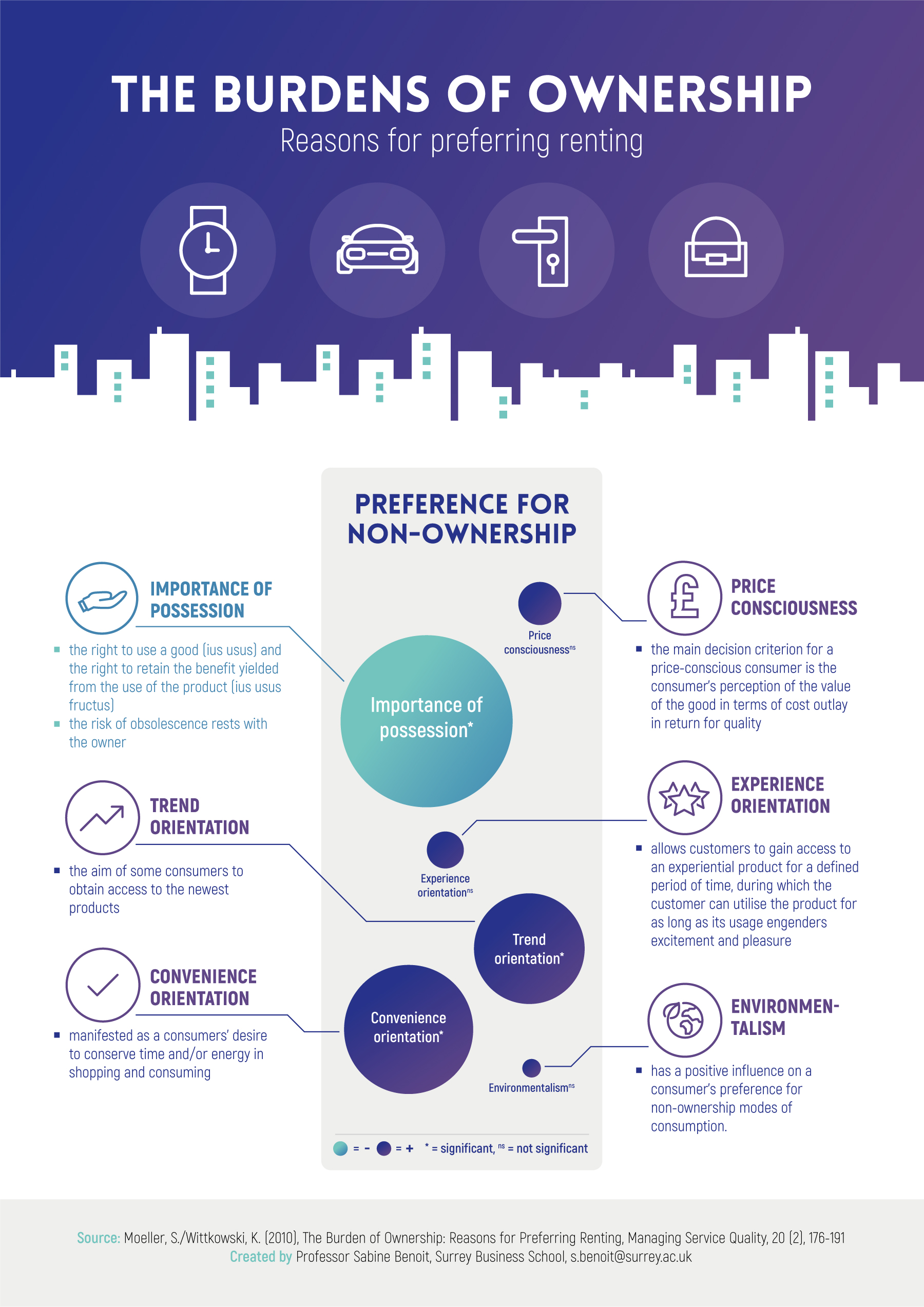What are the burdens of ownership?
This research answers why consumer prefer renting rather than owning
Summary of my research
The purpose of this study is to identify and assess the importance of proposed determinants of the growing consumer preference for renting consumer goods, as opposed to the actual transfer of ownership. Following a qualitative preliminary study and a literature review, six factors are identified as possible determinants of a preference for non-ownership modes of consumption. These are examined in a quantitative study using a sample of 461 members of a German online peer-to-peer sharing network. Hypotheses regarding the proposed determinants are tested using factor analysis and structural equation modeling.
The results show that the demand for non-ownership services is negatively influenced by “possession importance” (the importance that a consumer attaches to full ownership) and positively influenced by “trend orientation” and “convenience orientation”. The other proposed determinants – “experience orientation”, “price consciousness”, and “environmentalism” do not appear to influence a preference for non-ownership modes of consumption. Although the renting of goods is an increasingly popular form of consumption, consumers still value ownership. Suppliers should therefore consider offering a mixture of “ownership” and “non-ownership” modes of consumption to their customers. This study complements existing research in this area, which has largely been conceptual in nature, by undertaking an empirical evaluation of the importance of several proposed determinants for non-ownership preference.
